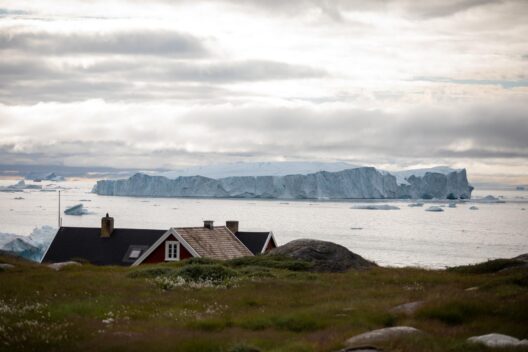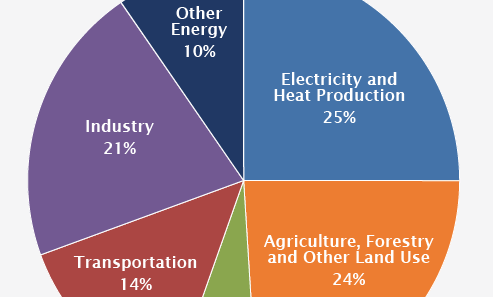Global warming, a critical aspect of climate change discourse, has engendered considerable debate not only among the public but also within scientific communities. The question of whether serious scientists dispute global warming predictions is intricate and multilayered. While a consensus exists regarding the warming trends of the Earth and the human contribution through greenhouse gas emissions, there are factions within the scientific community that approach the subject with skepticism or raise concerns about the projections made by climate models.
One of the predominant areas of contention lies in the methodologies employed in climate modeling. Climate models are computational programs designed to simulate the interactions between the atmosphere, oceans, land surfaces, and ice. Discrepancies in predictions often stem from divergent assumptions or interpretations of data inputs. Detractors may argue that models can be overly reliant on certain parameters, potentially leading to exaggerated forecasts. These critics urge for a more cautious interpretation of model outputs, advocating for a broader range of scenarios, particularly considering natural climate variability.
It is also crucial to delineate the distinction between skepticism and denial. Skepticism, in the scientific context, serves as a catalyst for inquiry and innovation. Serious scientists often express skepticism about specific models or projections while still acknowledging the overarching phenomenon of climate change. This scientific skepticism propels continued research and refinement of climate models, ensuring that predictions are as accurate as possible. On the other hand, denial refers to a refusal to accept the overwhelming evidence supporting human-induced climate change.
Significantly, many of the so-called “climate skeptics” are not outright deniers but are researchers who emphasize uncertainties in predictions. These scientists might argue that the impacts of climate change could be overestimated, particularly concerning extreme weather events or changes in precipitation patterns. They may advocate for a more nuanced understanding of climatic systems, arguing that local and short-term climate variations can deviate significantly from long-term trends. Such discussions lend themselves to a deeper understanding of climate dynamics but do not contest the fundamental tenet of global warming itself.
Moreover, the dialogue surrounding climate sensitivity is another facet where scientific debate flourishes. Climate sensitivity refers to the degree of warming expected from a doubling of atmospheric carbon dioxide concentrations. Estimates suggest a range of 1.5 to 4.5 degrees Celsius, but this range remains a focal point for scientific scrutiny. Some argue that sensitivity could be lower than the current consensus, which would imply a less dire future scenario. Others contend that the models fail to account for feedback effects that could amplify warming. This ongoing debate underscores the complexity of climate systems and highlights the importance of continued research and observation.
Another point of contention involves the socio-political dimensions of climate science. Critics often posit that climate science is unduly influenced by external agendas, leading to biased conclusions. These assertions can stem from the perception that researchers are motivated by funding opportunities tied to climate initiatives or policies. However, it is necessary to acknowledge that scientific research relies heavily on robust peer-review processes. Peer review offers an avenue for experts to assess the validity and reliability of research findings, helping to mitigate biases that may emerge in the field.
Furthermore, the role of media in shaping public perception about climate predictions cannot be understated. Often, headlines may focus on sensational predictions or stark warnings, which can misrepresent the nuances of scientific discourse. The media plays an instrumental role in translating complex scientific data into digestible information for the public, yet this simplification can lead to misunderstandings of the science. Public figures and politicians may often latch onto these representations, further complicating the conversation surrounding climate science.
Another critical aspect of global warming discussions is the reliance on interdisciplinary approaches. Climate science encompasses a myriad of disciplines, including meteorology, oceanography, atmospheric chemistry, and ecology. The interplay of these fields enriches the understanding of climate change but also introduces varying perspectives on predictions. Acknowledging that each discipline may contribute different insights can help bridge the gaps and enhance collaborative efforts aimed at addressing the challenges posed by climate change.
In recent years, the recognition of extreme weather events has added another layer to discussions surrounding global warming. Some scientists posit that while climate change may not cause specific extreme events, it can exacerbate their intensity and frequency. For instance, warmer ocean temperatures can lead to more vigorous hurricanes. This association is rooted in the idea of increased energy in the climate system, which fosters enhanced atmospheric phenomena. However, this does not negate the importance of scrutinizing models that project extreme weather impacts.
Ultimately, the discourse surrounding global warming predictions reveals a spectrum of opinions. While a consensus exists among the majority of climate scientists regarding the need for urgent action to mitigate climate change, dissenting views underscore the complexity of the issue. The scientific method thrives on debate and inquiry, and it is through examining these various perspectives that society can cultivate a more profound understanding of climate dynamics. The reclamation of credible scientific discourse is essential in navigating the intricacies of climate change and its far-reaching implications.
In conclusion, while serious scientists do engage in legitimate discourse over aspects of global warming predictions, the essential reality of climate change as a phenomenon remains largely unchallenged. Continued research, dialogue, and interdisciplinary collaboration will be instrumental in enhancing the accuracy and reliability of climate predictions, ultimately guiding policy and action toward a sustainable future.







